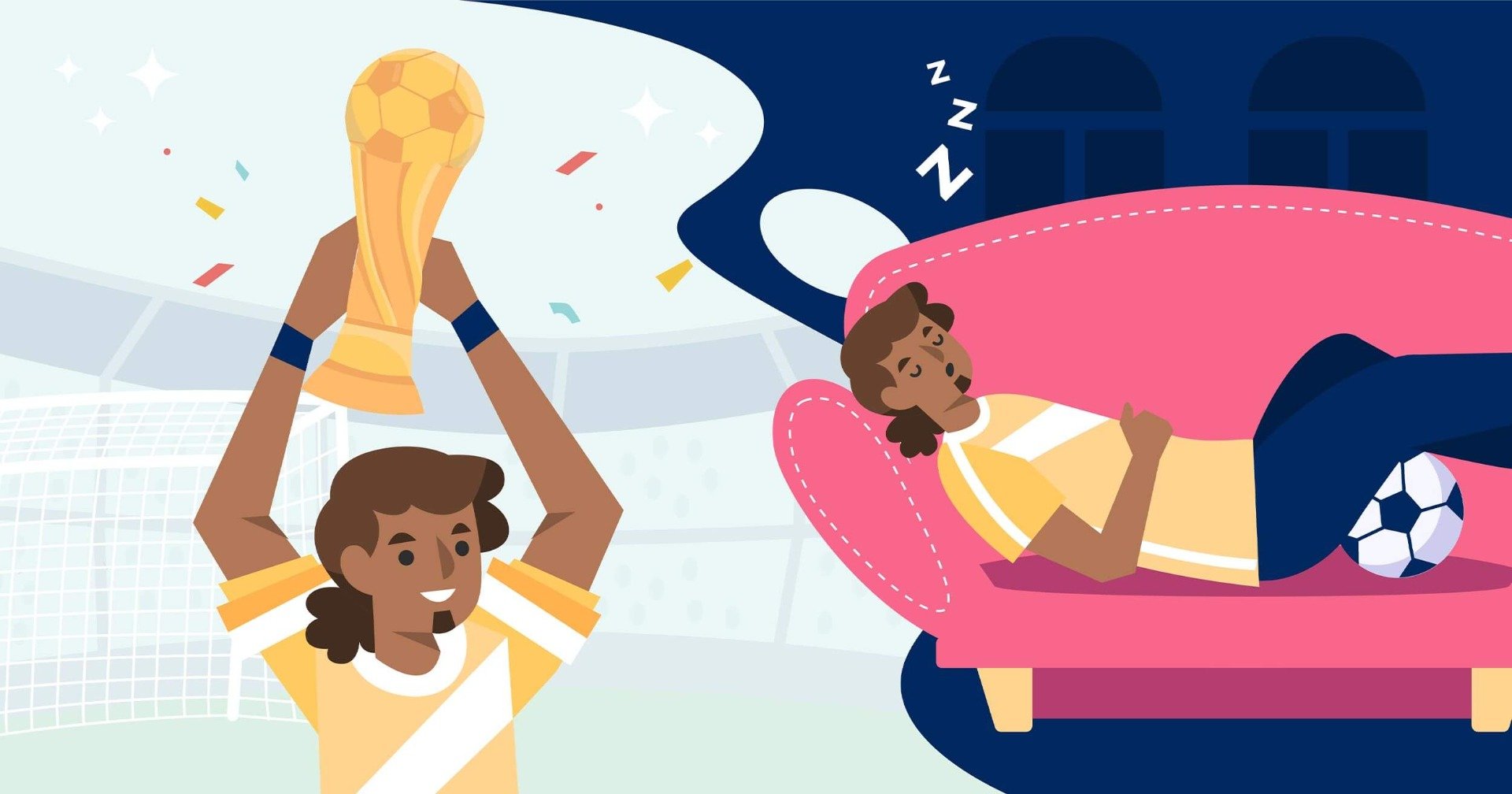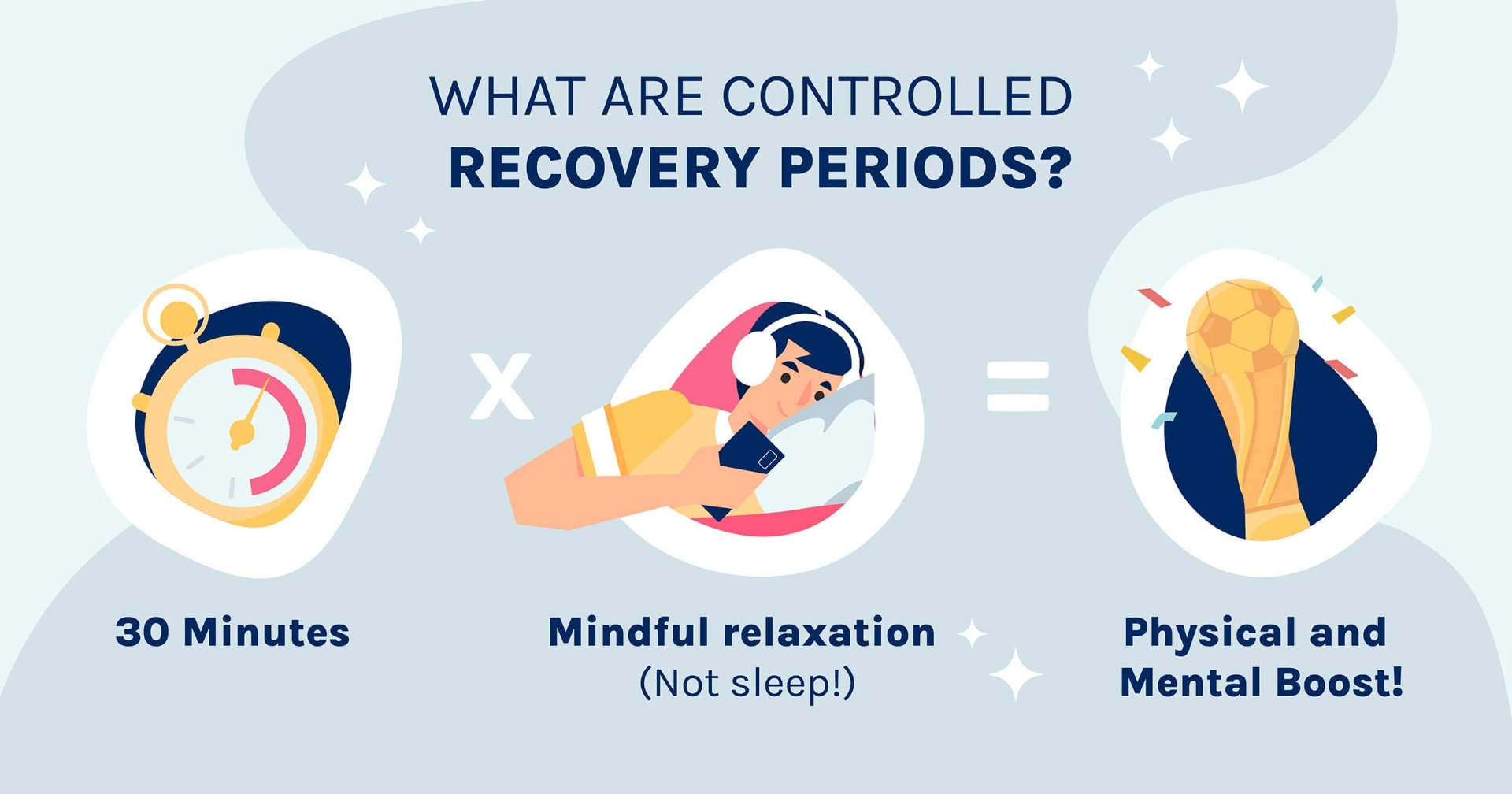
Football and Sleep: The Link Explained
With the World Cup on the horizon, we're looking at the unique link between football and sleep, and how it affects player prowess.
Footballers are elite athletes, required to perform staggering feats of skill, endurance, and decision-making on a weekly basis. An average player will cover a gruelling 7 miles during a game and withstand an onslaught of challenges, hard landings, and the occasional acrobatic celebration. (One of those is, however, optional).
Sounds exhausting, right? It is. But as players strive to improve their on-pitch effort, the link between football and sleep has become a core focus for coaches eager to maximise their players’ performance.
We’ve come a long way since the ‘magic sponge’.
As sleep science has revealed the pivotal role of high-quality shut eye in players’ on-pitch prowess, many coaching teams now feature dedicated sleep experts dedicated to ensuring that players are properly rested before kick-off.
So, as World Cup fever sets in, we’re exploring the ever-important link between football and sleep.

How Does Lack of Sleep Affect Footballers?
Footballers are just like us. Sure, they spend a little more time under the bright lights of packed stadiums, and their cardio sessions would leave most of us gasping for oxygen, but when it comes to sleep, we’re in the same boots.
You’ve likely felt the overwhelming urge to sleep after a taxing workout – or even just a particularly busy day. But if you’re unable to snag that much-needed slumber, you’ll wake feeling groggy and disoriented, which affects your mood, energy levels, and decision-making abilities.
The same is true of footballers. Except for them, the pressure to deliver for fans – not to mention avoid injury – is constant.
And it’s here that the link between football and sleep is most apparent. Football is a high-impact sport, and it takes its toll on players’ bodies. As we know, sleep is vital for recovery, so players who don’t get enough risk physical damage that in some cases can end their careers.
Indeed, as noted in Dormeo’s recent season-long sponsorship with Brentford FC, the football club’s in-house sleep expert Anna West confirmed that the link between sleep deprivation and muscle injury is a key concern. In fact, a single night’s poor sleep can weaken a player’s immune system, making them more susceptible to injury.
And it isn’t just physical recovery, either. A footballer’s life is lived in the public eye, with countless newspapers, blogs, and podcasts analysing their every move. Literally.
As you can imagine, this level of scrutiny can affect a player’s mental wellbeing; potentially leading to anxiety, depression, and other mental health issues.
But as coaches become savvier about the restorative power of sleep, they’re constantly tweaking players’ sleep habits to get the most out of their slumber.

For example, as part of their push for World Cup success, Germany have drafted a sleep expert to analyse the team’s sleep habits and recommend more effective slumber strategies.
And the same is happening in club football. In 2016, Brentford FC hired Anna West to monitor and improve their sleep habits, leading to tailored sleep plans for individual players.
So, with so much focus placed on football and sleep, it seems fair to ask…
How Many Hours do Footballers Sleep?
How much footballers sleep has become a key issue in the modern game, with coaches instructed to treat sleep as being as important as nutrition and physical condition.
But if you’re asking what time footballers go to sleep, it depends entirely on the player and their specific sleep needs.
We know that professional athletes need more rest than most – ninety minutes on the left wing is a little more taxing than, say, writing – but each player needs a tailored sleep plan.
Manchester United and Portugal striker Christiano Ronaldo worked with famed sleep-coach Nick Littlehales to devise a sleep routine including five ninety-minute naps per day, rather than sleeping your standard eight-hour night.
Another nap-fan is England and Manchester City midfielder Jack Graelish, who can often be found snagging a snooze in between training sessions. Meanwhile, his England teammate (and skipper) Harry Kane, sticks to a more traditional sleep cycle of 7.5 hours a night.
During his time at Brentford FC, Danish midfielder Emiliano Marconded worked closely with Anna West to improve his sleep – notably by getting out of bed if he couldn’t drift off within half an hour.
See? While each player performs at the peak of physical fitness, their individual needs determine how much sleep they need and when they need it.
Fact File: Controlled Recovery PeriodsWhile there’s no substitute for quality sleep, many footballers support their snoozing with Controlled Recovery Periods (CPRs).
Championed by Nick Littlehales, controlled recovery periods entail allocating 30 minutes to yourself, with the sole intention of rest and recouperation.
Whether it’s meditation, mindfulness, or even listening to your favourite playlist in a quiet room, CRPs offer your body the chance to rest, and contribute to your overall sleep cycle.

As Qatar 2022 approaches, fans, pundits, and bookies alike will be clamouring for insights that may affect players on pitch performance.
And while training drills, diet plans, and exercise regimes may be the most obvious markers, those in the know will recognise the on-pitch benefits of strong sleep habits.
For more expert insights on sleep health, check out our sleep blog.








Leave a Reply